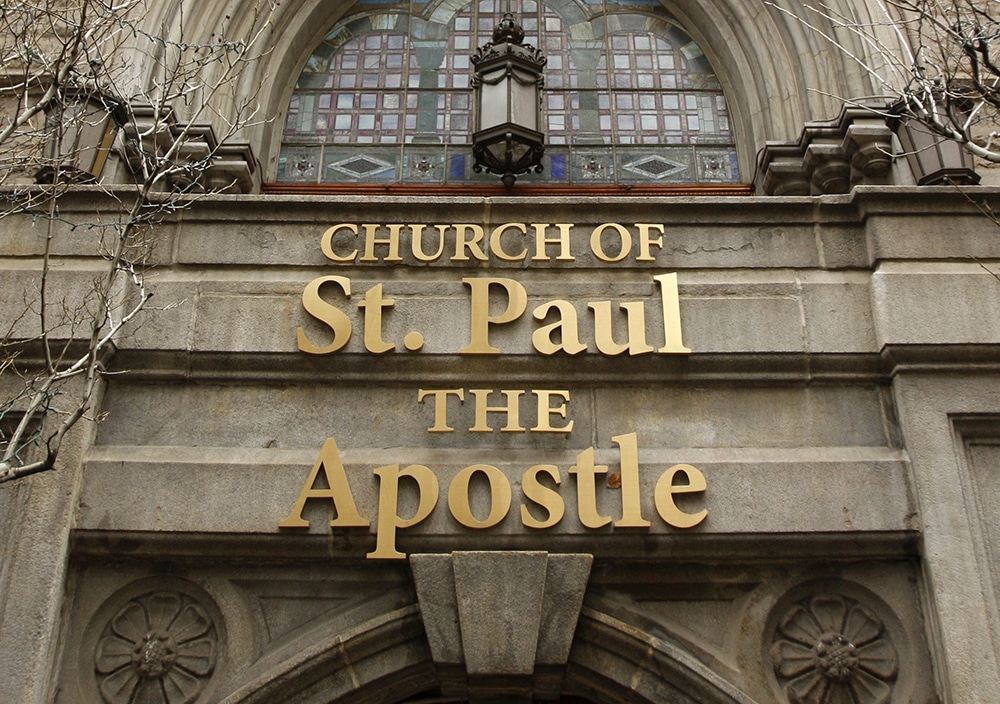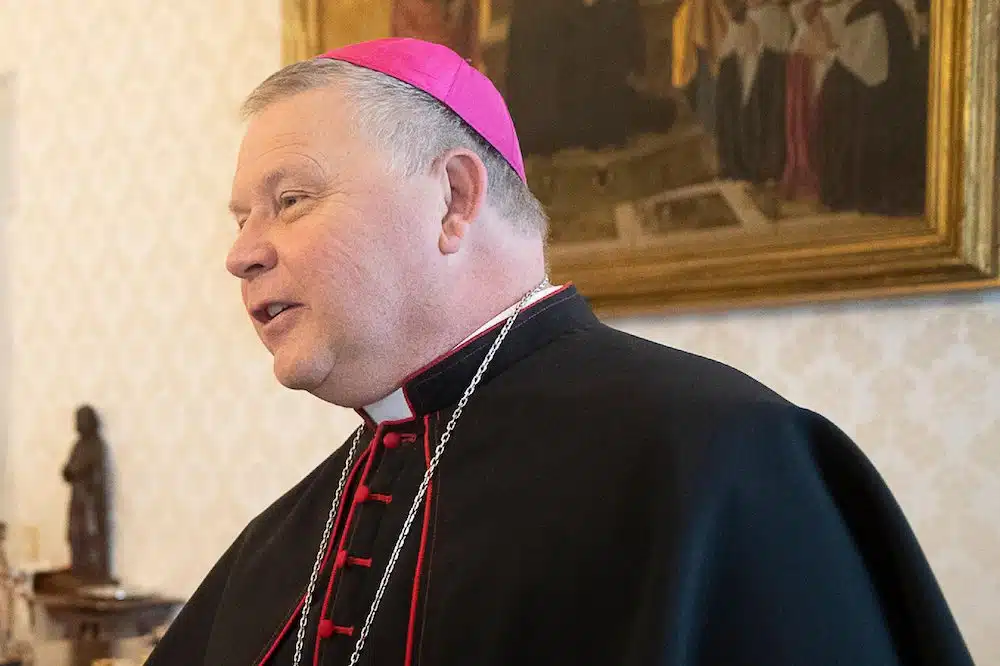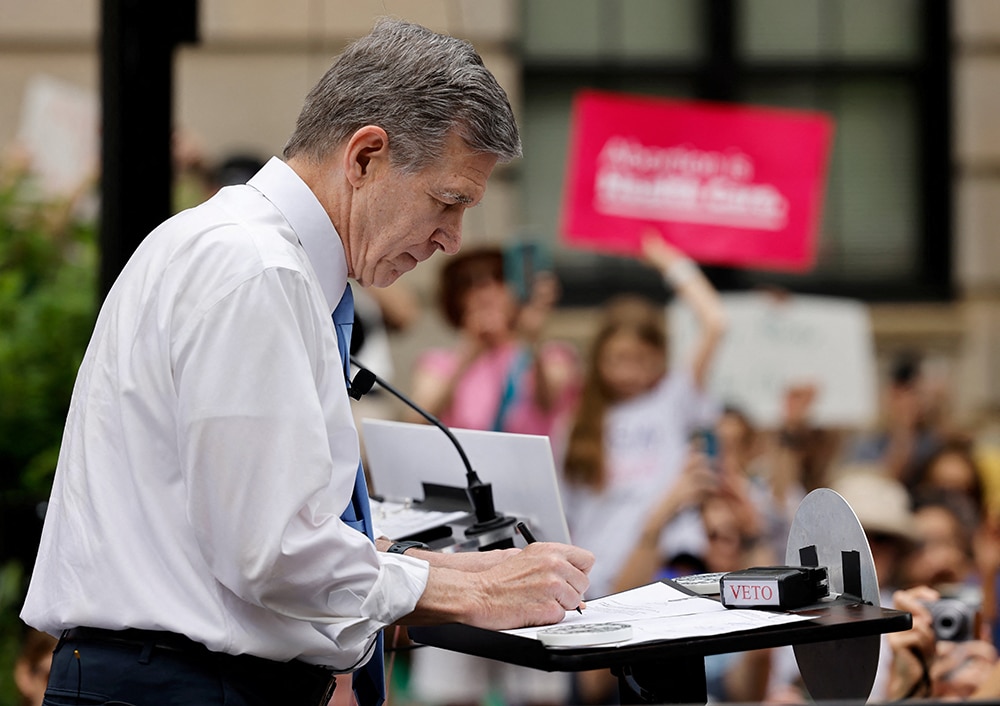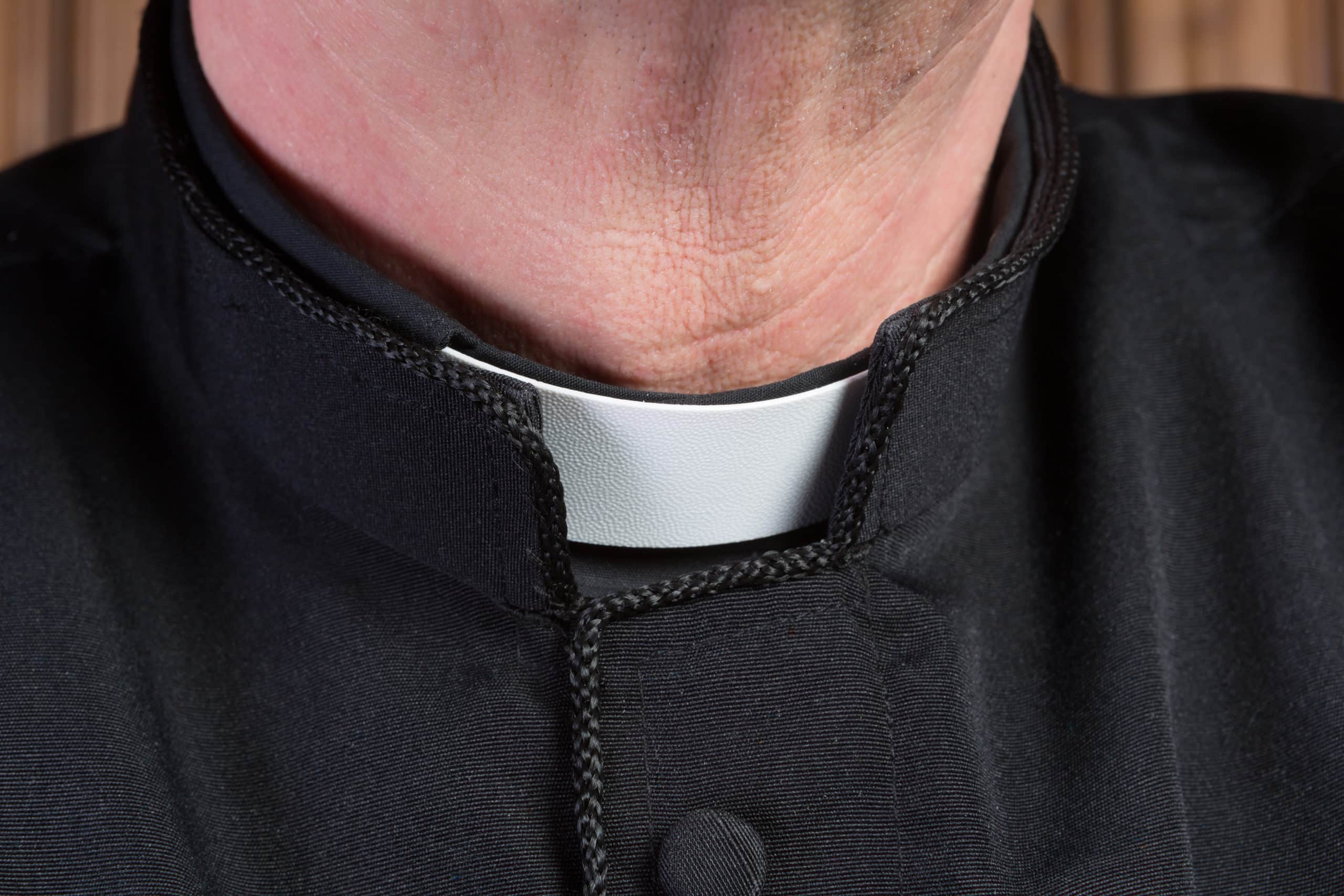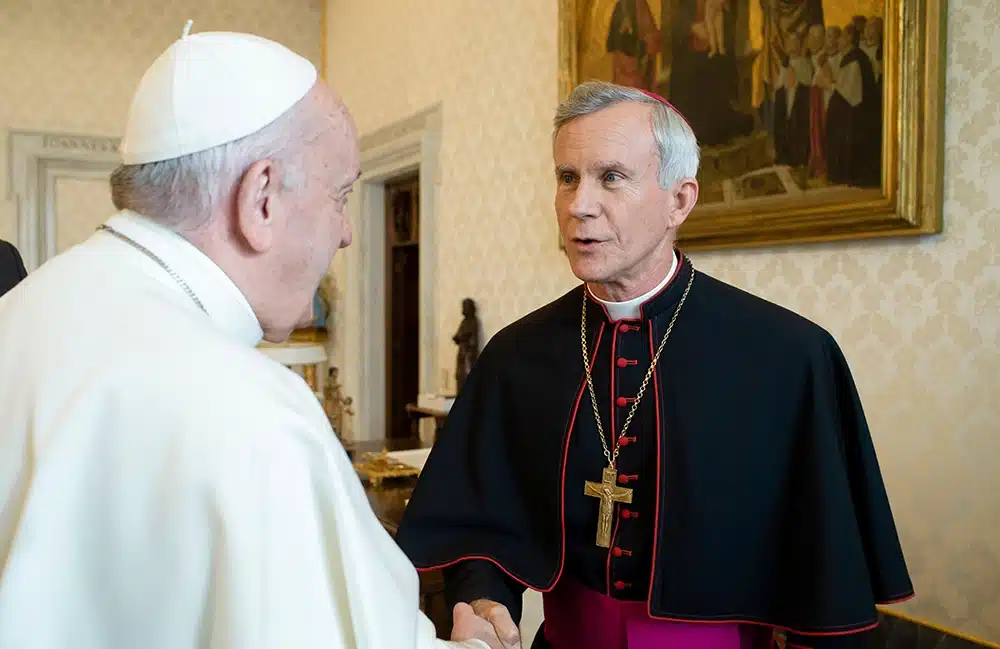(OSV News) — An art installation that was on display at a Catholic church in New York raised concerns due to its stance on human sexuality and the nature of evil.
The Church of St. Paul the Apostle in Manhattan recently hosted “God Is Trans: A Queer Spiritual Journey” by artist Adah Unachukwu, who according to her LinkedIn profile is a student at Jesuit-run Fordham University and an intern at GLAAD, an LGBTQ media advocacy organization.
The installation’s three paintings, hung next to a side altar honoring St. Agnes, depicted “the queer spiritual journey by three significant points: sacrifice, identity and communion,” according to an informational placard.
A spokesman for the Archdiocese of New York told OSV News that it had “learned about the exhibit through media reports,” and that he understood “the parish has now removed the exhibit.”
Speaking to another media outlet, an archdiocesan spokesperson said that “if media reports are accurate, then we would have concerns. We are investigating and looking to speak with the pastor of the parish to get more information.”
Paulist Father Rick Walsh, pastor of St. Paul the Apostle, did not immediately respond to OSV News’ request for comment.
The brightly colored works, which featured semi-abstract human and divine figures, were rounded out by a video on a tablet stationed on the altar rail.
“Sacrifice and its complementary act in the film speak to the need to shed an old life and personhood in order to be able to focus on your spiritual need,” read the description. “There is no devil, just past selves.”
The second work, “Identity,” was “the most impactful part of the exhibition,” said the placard. “What does holiness look like? What does your god look like? Are these two portrayals that can be merged?”
In “Communion,” the final piece, “God and the mortal (are) on the same plane to speak to one another,” evoking “a spiritual home and the ways we can achieve this home in our everyday lives,” the text said.
According to its website, the parish — the mother church of the Paulist Fathers, America’s first order of Catholic priests — is home to “Out at St. Paul” (OSP), an “LGBTQ+ ministry … which seeks to engage our Catholic faith through service to our community, social activities and the exploration of Catholic spirituality.”
A staff member at the parish’s book store told OSV News that Unachukwu’s exhibit is part of a larger May 6-June 14 installation called “Vessel.” Billed as “a spiritual art experience,” the display — co-sponsored by Fordham University’s Center on Religion and Culture in partnership with Paulist Father Frank Sabatte and the Openings Artist Collective — will explore “how young people encounter spirituality through their own original art.”
While some observers were reported to express support for the art exhibit, at least one unnamed St. Paul parishioner was quoted by media as saying “the church should not be promoting this.”
“I understand there are transgender people. I pray for all people, but enough is enough,” said the parishioner. “It seems like they are trying to force the agenda on others.”
John Grabowski, professor of moral theology and ethics at The Catholic University of America in Washington, told OSV News May 11 the exhibit’s title and descriptive text raised “several really big red flags.”
He pointed to the Catechism of the Catholic Church, which states that God “is neither man nor woman … (but) pure spirit” (CCC, No. 370).
God “does have a body … assumed by Christ in the Incarnation,” and throughout Judeo-Christian tradition has revealed himself to humans “primarily as Father,” stressing his role as a transcendent creator, “rather than as a mother who gives birth to the world,” a view that “can lead to pantheism,” said Grabowski.
Humans are called to accept the God-given unity of soul and body, he said.
“When we adopt identities for ourselves that are unreal to our bodies … we’re denying that we are creatures of God,” Grabowski said. “We become self-created subjects, and we are in effect denying our Creator by doing that.”
Unachukwu’s call to “shed an old life and personhood” is actually “a fallacy (and) heretical,” said Grabowski. “We can’t shed our personhood, which is a gift from God, rooted in our bodies.”
The notion that “there is no devil, just past selves” also is “materially heretical,” he said. “Scripture from the third chapter of Genesis through Revelation bears witness to the reality of the devil, which is something the Church teaches definitively. You really do have to close your eyes to the world around us, and to your own experience as a Christian, if you think there’s no such thing.”
On display in the exhibit is “gender ideology, which at its deepest root is 21st-century gnosticism … the oldest and most persistent heresy in church history,” said Grabowski, referencing second- and third-century movements that held the inferior material realm had to be completely transcended for salvation. “We have a really high-tech version of it here, but this is the same heresy the church has been fighting since its beginning.”
At the same time, “gender dysphoria is real,” he said, and parishes need to do more to accompany those experiencing it, since “all the best evidence shows this is a psychological struggle, and … medicalizing psychological issues doesn’t help people.”
Grabowski stressed the need to “reach out and accompany” those struggling with their sexuality.
“We need to walk with them, but not aimlessly,” he said. “We need to direct them to the person of Jesus Christ, who actually has the answers to their questions and their deep hurts.”

